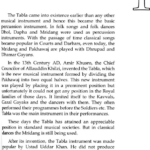Justice V. Ramasubramanian Assumes Role as National Human Rights Commission Chairman

Former Supreme Court Judge Shri Justice V Ramasubramanian today assumed the charge of Chairperson and Justice (Dr.) Bidyut Ranjan Sarangi as a Member of the National Human Rights Commission (NHRC) in India.
LEARNING FROM HOME/ WITHOUT CLASSES/ BASICS
The United Nations General Assembly adopted the Universal Declaration of Human Rights (UDHR) in 1948. The UDHR is a milestone document that proclaims the inalienable rights that everyone is entitled to as a human being— regardless of race, colour, religion, sex, language, political or other opinion, national or social origin, property, birth or other status.
NATIONAL HUMAN RIGHTS COMMISSION
The National Human Rights Commission (NHRC) of India, a statutory body, established on 12 October, 1993. Section 2(1)(d) of the Act defines. Human Rights as the rights relating to life, liberty, equality and dignity of the individual guaranteed by the Constitution or embodied in the International Covenants and enforceable by courts in India.
Apart from investigating complaints of human rights violations or negligence in preventing such violations by public servants. The Commission also studies treaties and international instruments on human rights and makes recommendations to the government for their effective implementation. It has all the powers of a civil court.
The NHRC is a unique institution. It is one of the few National Human Rights Institutes (NHRIs) in the world whose Chairperson is the former Chief Justice of the country. This act also authorized State Governments to establish State Human Right Commission. President appoints the Chairman and members of NHRC . The chairman and the members of State Commission appointed by the Governor

- The President of India gets an annual report from NHRC. It is laid before both the Houses of the Parliament.
- The Recommendations made by the NHRC are not binding.
- Private parties violation of Human rights not fall under NHRC Jurisdiction.
- NHRC doesn’t have the power to penalise the authorities that don’t implement its recommended orders.

NHRC does not have any mechanism of investigation. It asks the concerned Central and State Governments to investigate the cases of the violation of Human Rights. NHRC can only make recommendations, without the power to enforce decisions.






0 Comments